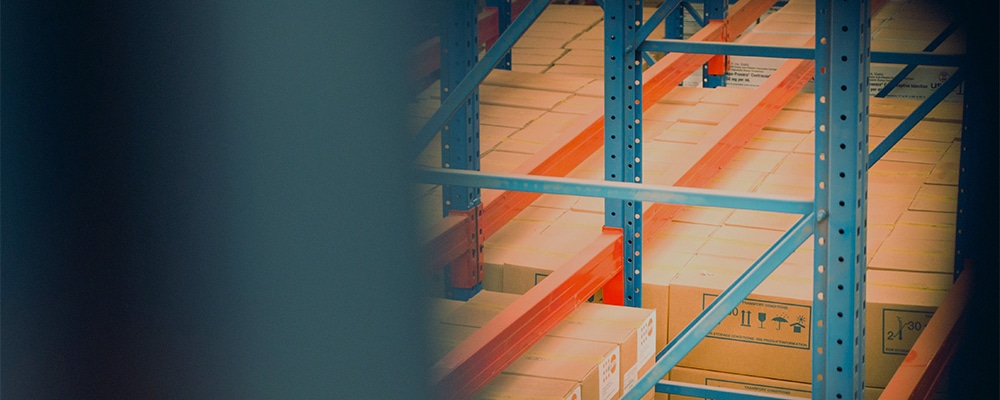With constant peaks in demand and disruption at play, businesses are struggling to strike a balance between meeting consumer demand and ensuring they are carrying out sustainable practices. So how can retailers rise to the occasion?
The entire supply chain has been orchestrated to seamlessly service demand, while striving to keep logistics costs down and meet customer expectations. One relatively fast-growing expectation among consumers is the need for retailers to operate sustainably before they even consider doing business with an organisation.
According to new research by Unilever, a third of consumers choose to purchase from brands based on their social and environmental impact. Every time customers spend their money, they are making an active choice about the company and practices they support.
Issues such as environmentally conscious manufacturing, prevention of counterfeit goods and responsible farming are top of consumers’ minds when making purchase decisions.
The problem is the retail industry can often be complex, making it difficult to have full visibility across all processes to make an informed choice. Brands are expected to be completely responsible for their ethical practices, but often the issue is that most are unaware of the practices that take place.
Within the retail sector, Blockchain is becoming an increasingly popular technology for verification, helping to speed up processes and prove against counterfeit goods. Adoption of blockchain technology enables organisations to track products right through the supply chain providing proof points at every step. Though blockchain plays a vital role for verifying information, it’s not the silver bullet when it comes to achieving a fully transparent and sustainable supply chain.
With constant peaks in demand and disruption at play, businesses are struggling to strike a balance between meeting consumer demand and ensuring they are carrying out sustainable practices. So how can retailers rise to the occasion?
Addressing the conscious customer
Customers today are expecting fast, premium fulfilment and delivery at little to no cost – the focus for retailers has shifted from forecasting product consumption to anticipating customer needs and catering to personal preferences.
As this demand evolves and sustainable practices become an expectation, businesses need to adapt in order to keep up. This means understanding the shift in consumer behaviour and expectations, being aware of retail and supply chain advancements and knowing how to leverage both to achieve a green approach.
Customers today are paying closer attention to a product’s journey before final fulfilment; this includes how brands source, manufacture and distribute goods. Retailers that can demonstrate a tightly controlled supply chain and in-depth knowledge of its suppliers across their network are at an advantage.
Leveraging a trusted network
Ultimately, success with the ethical supply chain requires a network of trading partners and seamless connectivity to those partners. A network can bring visibility across the supply chain, while offering connections to thousands of potential partners that can help to streamline execution and carry out capabilities when needed. By leveraging their networks, businesses can explore new routes with lower risk, reduce inventory and carrying costs.
A connected supply chain breaks down silos and consolidates data, plans and processes into one central platform. This provides retailers, partners and suppliers alike with access to the information in real-time. By enabling access to supplier information, including where materials are sourced, environmental performance and the ability to share it with customers, retailers can ensure all parties involved are accountable across the supply chain. Similarly, it is important to ensure the partners you’re working with have a supplier code of conduct they live up to.
Data is the core of delivering a sustainable supply chain and retailers need to have full visibility across all processes, from employees, trading partners to suppliers. A collaborative supply chain model helps partners locate the resources needed on demand, providing capacity where and when retailers need it most.
Optimisation is key
Underlying this network is a centralised, cloud-based technology platform that allows a business to scale up, or down, dependent on their needs. Companies that are electronically connected to their trading partners, through electronic data exchange or are using application programming interfaces, can achieve better supply chain performance.
Retailers need to align with transportation companies that utilise a transport management system (TMS), providing real-time data and visibility across the supply chain. This enables retailers to quickly adapt to changing business dynamics and optimises processes data to reduce costs and resources, yet meets delivery targets. When it comes to transport, organisations have visibility over the number of vehicles required for delivery, ensuring each is as full as possible. Armed with better data, retailers can develop more accurate supply and demand forecasting models, localise the procurement of resources and restructure contracts.
Increasing awareness around environmental impact and sustainable practices has led to a rise in conscious consumption – price and speed is no longer enough. In an increasingly connected world, where transparency and authenticity is valued, businesses must keep up with growing demands for ethical behaviour from internal operations to the final output.
By leveraging the right tools and technology, retailers can enable transparency across the supply and empower businesses to take steps towards sustainability. Businesses can successfully navigate sustainable processes with real-time data, the right network and applications.
Written by Paul Soong, Regional Director, ANZ, BluJay Solutions





















